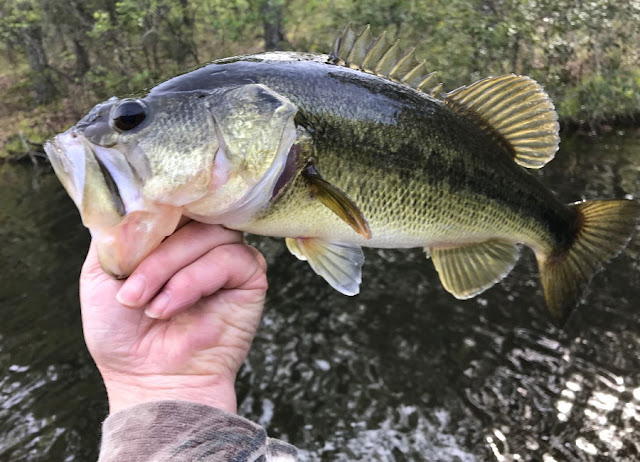How To Choose Fishing Line For New Angler
Choosing the right fishing line for your needs can be a difficult task. There are so many options and variations in each brand that it is difficult to know which one will work best for you. In this blog post, we'll cover how to choose fishing line for new anglers such as yourself.
We'll start by discussing the different types of fishing
lines available to you: monofilament, braided nylon, fluorocarbon and
braid-core lines. We then review what these materials are suited for before
providing instructions on how to choose between them based on your own
individual needs. Finally, we provide some general tips on how to get more out
of your fishing experience with the right equipment!
It's very common that a new angler will come into a tackle
shop and ask the question "What is the best fishing line for me to
use?" This, as most things in life, isn't only a matter of personal
preference but also requires an understanding of how you fish. Before we can
pick what fishing line might be right for you there are a few questions you
should first ask yourself.
How often do I go fishing? If it's only an occasional trip
down to the local pond for some bluegill and bass then chances are that we can
pick a line that is cost effective and durable enough for what your needs may
be. However, if you're getting into the sport of fishing and know there will be
many more trips to come, it's probably best that you look at a line that is
going to last a long time. The last thing you want is for your new fishing
hobby to be disrupted by having to change lines every trip because the one you
have wears out too quickly.
Do I need a clear fishing line? If you're fishing for bass
and the water is cloudy, a clear line will make it much easier to see your lure
in the water. Remember that with all fishing lines though, there's a chance
that some color from the line itself will bleed into the water and discolor it.
It's best if you pick a clear fishing line that is closest to the color of the
water you're fishing in.
How important is strength? If you plan to fish for billfish
or other large game fish, it's best that you pick a line with higher pound test
(strength). This will be necessary if your game fish makes an unexpected or
explosive run because your line may break or snap. If you're fishing for
smaller game fish, it might be best to pick a line with lower pound test so
that your line will break before the fish's teeth or gills do if it happens to
get snagged.
Do I target multiple kinds of fish? If you're targeting
multiple species of fish on the same trip then chances are you'll want to have
a line that can be used for multiple fish. There are many lines on the market
right now, specifically designed for different fishing types and conditions so
it's best to pick one of these lines. Choosing a line that isn't going to match
your needs will only cause frustration and worse – lost fish.
What size line would I like? There's a very noticeable
difference in diameter (size) when comparing different fishing lines. This also
makes a huge impact on the strength of the line and if you're not careful, will
have an effect on your casting distance. The smaller the line diameter, the
more sensitive it is to being spooled onto your reel. If you have a very
sensitive rod, it's normally best to pick a line with a smaller diameter
because this will allow for more feel and control. For larger line diameters,
it'll take more effort to spool onto your reel but will provide added strength
– which is generally needed when targeting bigger or more aggressive fish.
Don't worry though, there are lines on the market that specialize in both small
and large diameters.
Do I want to change fishing line often? If you plan on
changing your fishing line each time you go out then it's best to pick an
abrasion resistant material like Spectra or Dyneema (both made by DuPont). This
material is a very small diameter and very strong, which for a new angler is a
great line to replace the typical monofilament fishing line. It's also low
stretch so it doesn't interfere with catching fish.
Do I want color in my line? Fishing lines are available in
many different colors, some come pre-colored while others you can dye yourself.
There are a variety of reasons why you might want to pick a colored line,
mostly having to do with the fact that it'll be easier for you to see than the
typical clear fishing line. If your water is particularly cloudy or dark then
I'd recommend picking a line that is closer to the color of the water so as not
to lose it.
What's the best fishing line for a new angler? If you're a
new angler, I'd recommend going with a low stretch monofilament material
because this is the most sensitive and forgiving of any type of fishing line.
Also, go with a clear or lightly colored body (if your water is dark). If
you're targeting multiple types of game fish, I'd recommend going with a line
that is designed to work for different fishing conditions because matching the
proper line will make your fishing experience much more enjoyable.
More social:
https://www.linkedin.com/in/jamesfishing/
https://sites.google.com/view/fishinghacking/trang-ch%E1%BB%A7
https://fishinghacking.weebly.com
https://www.tumblr.com/blog/jamesfishing
https://fishinghacking.wordpress.com/
https://www.blogger.com/blog/posts/2091527538821839047
https://www.blogger.com/blog/posts/834381044484037509
https://teepepe.wordpress.com/




Nhận xét
Đăng nhận xét